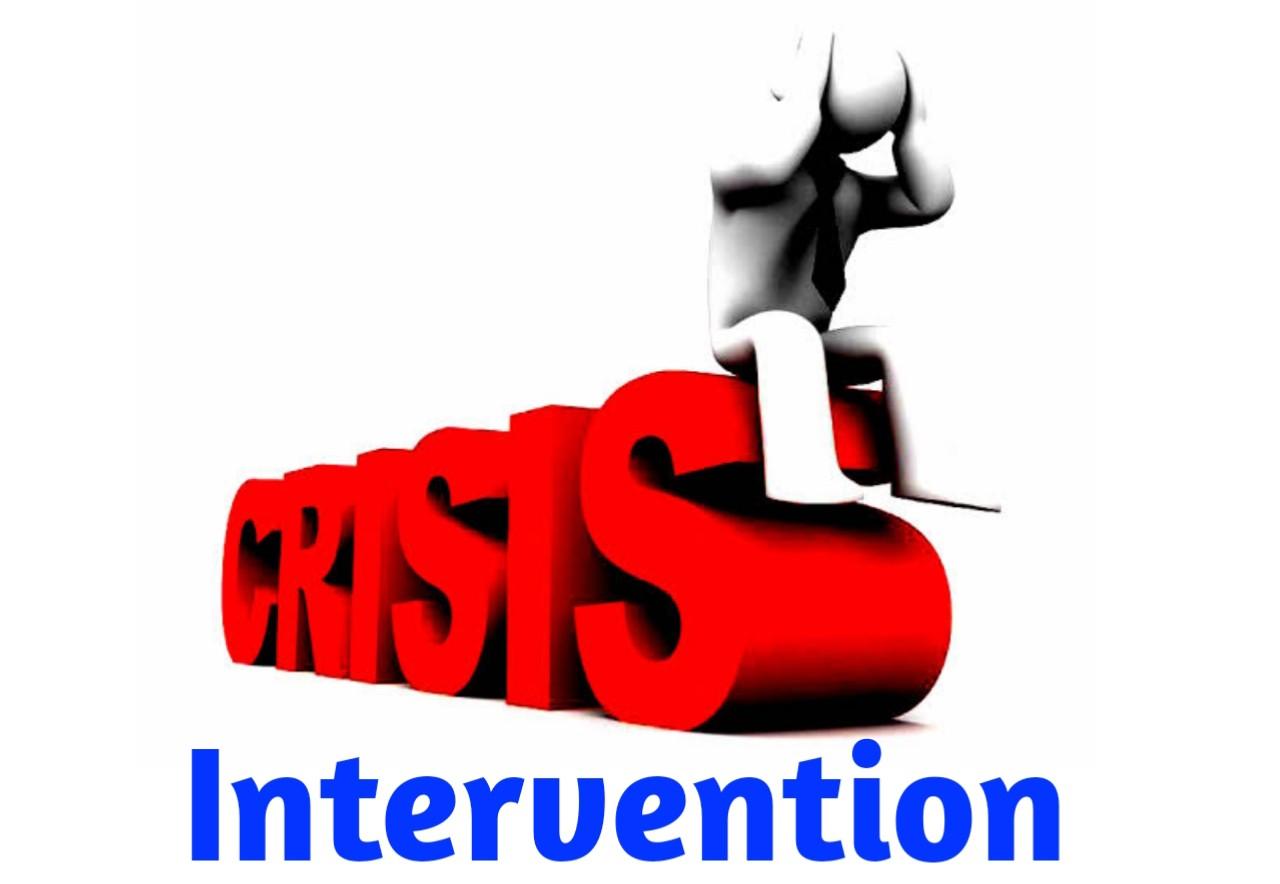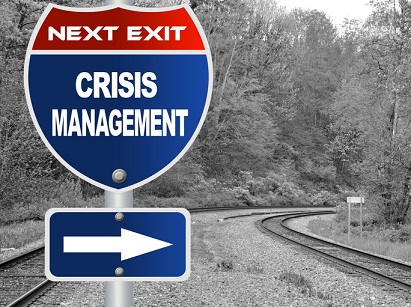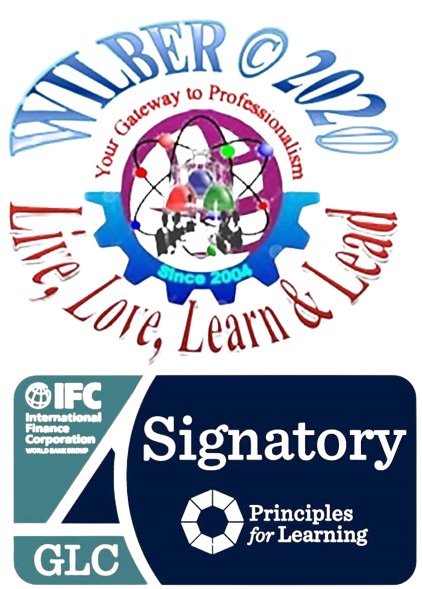CRISIS INTERVENTION MANAGEMENT

Presented by
WILFREDO R. BERALDE, MPSA, MSCrim
Licensed Criminologist
Chairman, Philippine Society of Criminology Inc.
Fellow Criminologist, Royal Institute Singapore
Author, Public Safety and Law Enforcement Educator
Cadre, Incident Command System
UN-WHO, Incident Management System (IMS Tier 1 & 2)

COURSE DESCRIPTION:
This course will explore theoretical perspectives and practical skillsets for effective communication, decision making, and problem-solving within a CRIMINOLOGICAL and criminal justice context. Strategies for crisis intervention and conflict de-escalation and resolution will be introduced.
Practical approaches for assessing, managing, and intervening in various criminological, criminal justice, social, regional, national, or even global situations will be examined.
Challenges with diverse client groups will be identified and interventions surveyed. Professional students at the end of the course will manifest enhanced talent if not the capability of managing crisis and similar situations.
CONTENTS
PART 1- Understanding Crisis
- Crisis Intervention Models
- Essential Crisis Intervention Skills
- Child Maltreatment
- Adolescent Crisis
- Institutional Response to Crisis
- Alcohol and Drugs Crisis
- The Crisis of Sexual Assault
- Intimate Partner Violence & Domestic Violence
- Crises Involving Bereavement, Grief, and Loss
- Crises Involving Suicide, Homicide, and Lethality
- Mental Health and Psychiatric Crises
- Health Crises
- Crises in Workplace
- Disaster Response

Understanding Crisis
CRISIS Defined
Is a predictable or unpredictable life event that is perceived by an individual as stressful to the extent that normal coping mechanisms are insufficient. Gerald Caplan (1964)
A crisis is a TEMPORARY STATE of upset and disorganization, characterized chiefly by an individual’s, group’s, or state’s inability to cope with a particular situation using customary methods of problem-solving, and by the potential for a radically positive or negative outcome.

Assumptions related to the Definition of Crisis (Caplan)
- A crisis begins with a precipitating event;
- The crisis state, by its very definition, is “time-limited.”
- Crises create a state of disequilibrium and disorganization for the people.
- Once the crisis event takes place, there is a cognitive interpretation or appraisal of the event, which accounts for the notion that not everyone reacts to a crisis in the same way.
- Crisis events will cause a breakdown in one’s ability to cope.
Other Definition of Crisis
- The word CRISIS itself is very rich in psychological meaning (Slaikeu, 1990)
- Chinese considers CRISIS is made up of two symbols, “danger” and “opportunity” (Wilhelm 1967)
- The English derivative of the word CRISIS is taken from the Greek word, KRINEIN which means “TO DECIDE” (Lidell & Scott, 1968)

In some instances, these decisions will help to improve one’s life. It is noted that it is potential for a “radically positive or negative outcome” in the aftermath of a crisis.
In a fundamental way, the direction that the outcome takes depends on the decisions made by the affected individuals as part of the crisis resolution process. (Slaikeu,1990, p. 15)
In other instances, however, these decisions may lead to a life that is negatively impacted and/or diminished in some way. To acknowledge this potential for positive or negative outcomes and the role of the individual’s decisions in determining the outcome is not as simple as implying that all the person in crisis needs to do is to “think positively.” To suggest this would be to DENY THE UNIQUE COMPLEXITY OF CRISIS EVENTS and the often insurmountable difficulties that they pose to affected individuals.

INTERVENTION DEFINED
It is an action taken to improve a situation, especially during times of disorder.

It is the act of interfering with the outcome or course especially of a condition or process in order to prevent harm or disorder or to improve functioning or conditions.
MANAGEMENT

It is the process of dealing with or controlling things or people.
It is the coordination and administration of tasks to achieve a goal.
It is a process of planning, decision making, organizing, leading, motivating, and controlling the human resources, financial, physical, and information resources of an organization to reach its goals efficiently and effectively.
CRISIS INTERVENTION MANAGEMENT DEFINED
Crisis intervention refers to methods used to offer immediate, short-term help to individuals (or groups of people) who experience an event that produces emotional, mental, physical, and behavioral distress or problems.

Crisis intervention is a short-term management technique designed to reduce potential permanent damage to an individual (or groups of people) affected by a crisis. ... Utilization of these methods can help restore one's mental state and prevent any psychological trauma immediately following a crisis. https://www.ncbi.nlm.nih.gov › books › NBK559081
Summing it up, CRISIS is an acute emotional reaction to a powerful stimulus or demand. A state of emotional turmoil. Three characteristics of crisis are:
- The usual balance between thinking and emotions is disturbed;
- The usual coping mechanisms fail;
- there is evidence of impairment in the individual or group involved in the crisis.

While CRISIS INTERVENTION is a TEMPORARY, but an ACTIVE and SUPPORTIVE entry into the life of individuals or groups during a period of extreme distress. “Emotional First Aid.” Different intervention tools are used for individuals vs. groups.
Reading several references on crisis intervention will reveal that most often it talks about the immediate restoration of the psychological and mental state of man. From a wider perspective of crisis management, this entails medical and psychological intervention, for criminologists being a behavioral scientist a recognition of both must be considered including that more dynamic approach towards the restoration of the society as a whole.

It is through this that most of the professionals dealing with crisis intervention focus on individual person, whereas a criminologist may deal with the individual and the society as a whole including that of the responder itself and other people involved in managing such problem.
WHO ARE PROVIDERS OF CRISIS INTERVENTION
Although some psychiatrists, psychologists, and behavioralist like criminologists are is crisis-oriented, most frequently crisis intervention is provided by firefighters, emergency medical or search and rescue personnel, police officers, physicians, nurses, soldiers, clergy, hospital workers, communications personnel, and community members.
Societal Influences on the Development of Crisis Intervention: a. Religion b. Warfare c. Disasters d. Medicine e. Law enforcement f. Emergency Medical Services g. Behavioral Science (Psychiatry, Psychology, & Criminology)
History of Organized and Systematic Crisis Intervention: (Note: Crisis intervention is often referred to as “early intervention”)
-1906 Edwin Sterlin – Mining disaster in Europe -1917 Thomas Salmon – Battlefields of World War I -1943 Eric Lindermann – Coconut Grove fire Boston, MA -1960´s Gerald Caplan – Contributed most of the modern crisis intervention theory -1970´s - The field of CISM begins in 1974. It is a subset of crisis intervention. It shares the same goals, principles, and interventions. -1980 and 90‘s - refinements to the CISM field

Goals of Crisis Intervention
- The goal of crisis intervention, therefore, is to help affected party mobilize their own coping resources in an effort to restore balance or equilibrium.
- Developing crisis theory does not only identify the crisis in itself but also assessing the individual’s (or group) ego functioning in the aftermath of the crisis situation as they attempt to cope with it.
- Finally, adequate ego functioning was the basis of one’s mental health. (GCaplan)
Goals of Crisis Intervention (J, Mitchell, MD, 2004)
- Mitigate the impact of event (lower tension)
- Facilitate normal recovery processes, in normal people who are having normal reactions to an abnormal event
- Restoration to adaptive function
- Normalization is the Ultimate Goal

Principles of Crisis Intervention:
- Simplicity – People respond to simple not complex in a crisis;
- Brevity – Minutes up to 1 hour in most cases (3-5 contacts typical);
- Innovation – Providers must be creative to manage new situations;
- Pragmatism – Suggestions must be practical if they are to work;
- Proximity – Most effective contacts are closer to operational zones;
- Immediacy – A state of the crisis demands rapid intervention;
- Expectancy – The crisis intervener works to set up expectations of a reasonable positive outcome;
Powerful traumatic events initiate the crisis response. These events are usually outside of the usual range of normal human experiences on the job or in one’s personal life. Examples are line of duty deaths or serious injury to operations personnel. Child deaths, multiple casualty events, and severe threats to emergency personnel are also classified as “critical incidents”.
TYPES OF CRISES
Based on these definitions, one could argue that just about any stressor could bring about a crisis situation. In order to further delineate this term, it is helpful to conceptualize crises as being grouped into three areas:
1. DEVELOPMENTAL CRISIS
The uniqueness of developmental crises is that it can be a precipitating event of the crisis or the stimulus event that is embedded in normal maturational processes (Slaikeu, 1990). Throughout the lifespan, human beings are constantly changing; yet the normal growth process is characterized by continuity, as one passes from one stage to the next, through a series of life transitions.
Erikson (1963) was one of the first developmental theorists to point out that development continues through the lifespan. What was also unique to his approach was his assertion that at each stage of development, there is a major task or conflict to be resolved by the individual in order to move onto the next stage. (see pictograph below)

The Latin derivation of the word “impediment” comes from the word “impedimenta,” meaning “heavy baggage,” and it is just this excess baggage that individuals drag with them to the next developmental stage. It is as if their unfinished business at one stage will impede their ability to master the challenges of subsequent ones.
:max_bytes(150000):strip_icc()/2795740-article-erik-eriksons-stages-of-psychosocial-development-5ac3df9e875db90037ffa803.png)
2. TRAUMATIC EVENT CRISIS
Traumatic event crises are what most people imagine a crisis to be. The most distinguishing characteristic of traumatic event crises is that there is a clear external precipitating event. The traumatic event is usually an uncommon or extraordinary incident, which one cannot predict, nor control.
Unlike the developmental crises, traumatic event crises can occur at any time in one’s development, commonly have a sudden onset, are unpredictable, have an emergent quality, and can impact more than one person (e.g., an entire state, county, or community/see illustration below).

3. EXISTENTIAL CRISIS
An existential crisis takes place when one begins to question the meaning of life or the meaninglessness of one’s existence, the lack of connectedness with other people, or the futility of one’s work or profession. This type of crisis is often experienced in the wake of some particular crisis event.

Existential crises are probably the most difficult to identify because, as with developmental crises, the person experiencing this type of crisis, may present with other complaints or with other symptoms.
4. PSYCHIATRIC CRISIS
When psychiatric crises take hold of some persons, they sometimes come without reason or notice, yet they can be so debilitating and send the person into an intense state of crisis. It is important to note, however, that not everyone with a psychiatric condition necessarily experiences crisis as part of their illness. However, when those who suffer from psychiatric conditions experience crisis situations or traumatic events, it can often add to the feelings of devastation. Or even a normal person that had been affected heavily by a tragic event may suffer from a psychiatric crisis.
THE CRISIS INTERVENTION
Crises Reactions: A Continuum of Response
People who experience any of the aforementioned crises often vary in the way they respond to that particular crisis event. The person in crisis usually does experience extreme upset and disorganization in functioning. One result of this disorganization is increased vulnerability, and the normal defenses that may have helped the person to cope in the past are no longer effective.
Acute crisis reactions are debilitating and can result in extreme levels of perceived psychological distress. However, until such time that some sense of equilibrium has been restored and the crisis has been constructively resolved, these individuals may feel that they are “going crazy.” Many individuals in crisis will experience a “fight, flight, or freeze” response in the face of the immediate crisis event.

The fight or flight response is that programmed, biological response that allows human beings to react in the face of imminent danger by either fighting off the danger (fight) or by fleeing (flight). This adrenalin surge and redirection of blood flow to the large muscles of the legs and arms allow the fight or flight response to occur.
END OF DISCUSSION:
Prepare for a Quiz!

Ang pag-unlad ng pagkatao kasama ang patnubay sa pag-unawa ng kanilang mga pangangailangan ay mahalaga dahil may ķrisis na pumupukaw sa bawat sitwasyon na nangangailangan ng pansamantalang interbensyon.